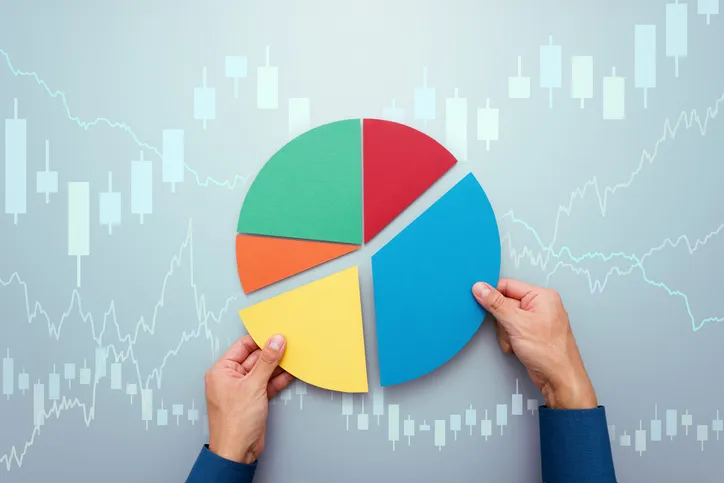Social media platform X is continuing to have a transformative 2025. A post-election slowdown in ad revenue is causing an increased push for more verified subscribers as well as an overhaul of their business subscription packages. Musk is also positioning Grok, the in-house AI fueling content creation and fact-checking on X, to be an industry leader. A recent update allows users to generate videos off of text prompts in Grok Imagine, a feature rollout timed to counter similar developments with Apple’s Sora AI. Even the X algorithm itself is being shifted towards AI, as Musk stated in September the algorithm will be “purely AI” by November.
A retail investor cannot invest directly in X, formerly known as Twitter. When Elon Musk purchased the company in 2022, it became privately owned, meaning that it does not list shares on public exchanges like the New York Stock Exchange or NASDAQ. The only way to potentially purchase shares is to buy them directly from third parties or from the company itself. By law you must be an accredited investor or institution in order to do this.
Investments can be risky and should be made with care. You may want to consult with a financial advisor who can help you build an investment strategy based on your goals.
Why Is X/Twitter Private?
Until October 27, 2022, X (then known as Twitter) was a publicly traded company. It was listed on the New York Stock Exchange under TWTR, with a final recorded share price of $53.70. After this date Elon Musk purchased a majority of outstanding Twitter stocks for $44 billion, or $54.20 per share.
This is a process known as taking a company private. Musk, with a group of lenders and other investors, made what is called a “tender offer” to Twitter and its shareholders. This is a bid to buy a significant portion, or an outright majority, of securities from a company and its shareholders.
A tender offer is different from a public stock purchase (when the investor buys shares from the market at large) or a private stock sale (when the investor buys shares directly from a third party). With a tender offer, the investor offers to buy securities from the company’s shareholders as a group. The shareholders and company vote on whether to accept this offer, with conditions set by the company’s articles of incorporation.
If the shareholders vote to approve the tender offer it triggers a sale. The company and its shareholders sell their stock based on the terms of the offer. This includes stock owned by dissenting shareholders, who are paid for their stock at the accepted rate.
Taking a company private occurs when an outside investor consolidates so many shares that the company falls below the threshold of public trading. Generally, this occurs when fewer than 300 individuals or entities own shares of the company. Below this threshold, the shareholders can declare the stock private. It is delisted from public exchanges, no longer has to meet SEC public filing requirements, and can only be freely traded by accredited and institutional investors.
This is what happened in the case of Twitter. Musk, along with a group of investors and lenders, made a tender offer to purchase all publicly available shares of the company. The shareholders ultimately approved this offer, after the company initially resisted with a poison pill strategy, and triggered a sale, after which Musk had consolidated ownership to a small enough group of investors that he could take the company private.
At $54.20 per share, Musk’s offer was considerably higher than Twitter’s value at the time in April, 2022. While this led to litigation and public disputes, it is extremely common for investors to offer at least some premium in a tender offer. This is their incentive for shareholders to agree to sell their stock all at once rather than to wait for future gains.
Now that Twitter, since renamed X, is a privately held company it is not listed on any public marketplaces, it is not traded through market makers and clearing houses, and it is not subject to public regulation. The only way to potentially buy this stock is directly through a current shareholder or the company itself.
Sign up for the Market Minute newsletter for news affecting potential investments delivered to your inbox.
Can You Buy Shares of X?

You cannot publicly invest in X stock. As a privately held company, X does not have shares traded on any public marketplace. Shares are held by a small number of large investors, such as Musk himself, and firms such as BlackRock and Vanguard.
Individuals may be able to privately invest in X by purchasing shares directly from these large investors. However, since X is a privately held company, it is illegal for retail investors to buy and sell this stock. Only institutions and accredited investors can trade X stock. Even among this cohort, an investor would need to contact someone who currently owns shares of X and conduct a direct transaction.
Alternatives to Investing in X
As a privately held social media company, it’s difficult to invest in the market around X. The company doesn’t necessarily rely on inputs and related companies the way that many other industries do, so it’s harder to find publicly traded companies whose fortunes are linked to X. While the specifics are not available, X’s main income streams seem to be advertisers and paid subscriptions. Elon Musk’s AI company xAI provides Grok for X users, but that is also a privately-held company in which retail investors cannot invest.
How Investors Can Invest in Private Companies Like X
Private companies, including X, do not trade their shares on public exchanges. Because of this, only certain investors can buy into them under U.S. securities law. Accredited investors qualify based on income or net worth—generally those who earn above a set annual income level or have at least $1 million in net assets, not counting their home. These limits are meant to restrict high-risk, illiquid investments to individuals and institutions that can bear potential losses.
Those who meet the requirements can invest in private companies in several ways. They may buy shares directly from current owners, take part in private funding rounds organized by the company, or invest through venture capital or private equity firms that hold positions in privately owned businesses. In some cases, secondary markets may facilitate share transfers, but these are limited and usually need company approval.
Individuals who are not accredited have very limited access to private companies. Indirect exposure is sometimes possible through publicly traded businesses or funds that own stakes in private firms. Smaller private companies may also raise money through Regulation A or Regulation Crowdfunding offerings, which allow some participation from the general public under strict SEC limits.
Private investments usually involve less information disclosure, longer holding periods, and a higher chance of loss than public investments. Anyone considering this type of opportunity should review all available information carefully and consider professional advice before committing funds.
Bottom Line

X, formerly known as Twitter, is a privately held social media company. Only accredited investors and institutions may freely trade this stock. For ordinary investors looking to side-invest in X, the best option might be to invest in other publicly traded social media companies.
Tips for Private Investing
- A financial advisor may be able to help you invest in private companies. Finding a financial advisor doesn’t have to be hard. SmartAsset’s free tool matches you with vetted financial advisors who serve your area, and you can have a free introductory call with your advisor matches to decide which one you feel is right for you. If you’re ready to find an advisor who can help you achieve your financial goals, get started now.
- Keeping an emergency fund on hand can help you cover unexpected expenses. An emergency fund should be liquid, which means holding funds in an account that are accessible and not at risk of significant fluctuation like the stock market. The tradeoff is that the value of liquid cash can be eroded by inflation. But a high-interest account allows you to earn compound interest. Compare savings accounts from these banks.
- To keep up to date on important events that may affect X and other companies, sign up for the free Market Minute Newsletter.
Photo credit: X, ©iStock.com/hocus-focus, ©iStock.com/tadamichi
